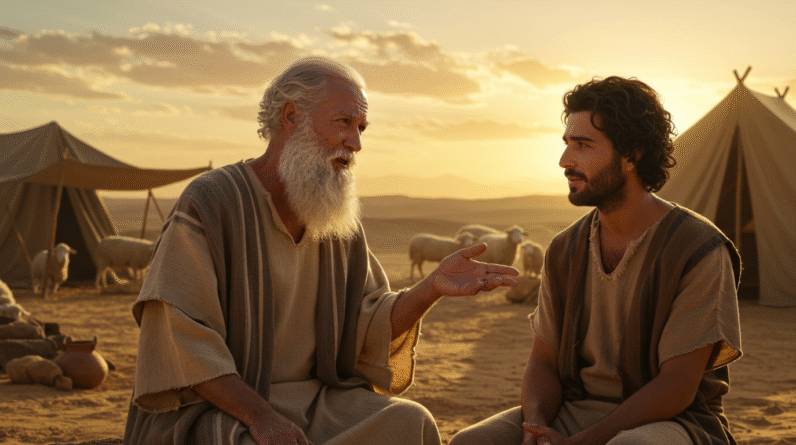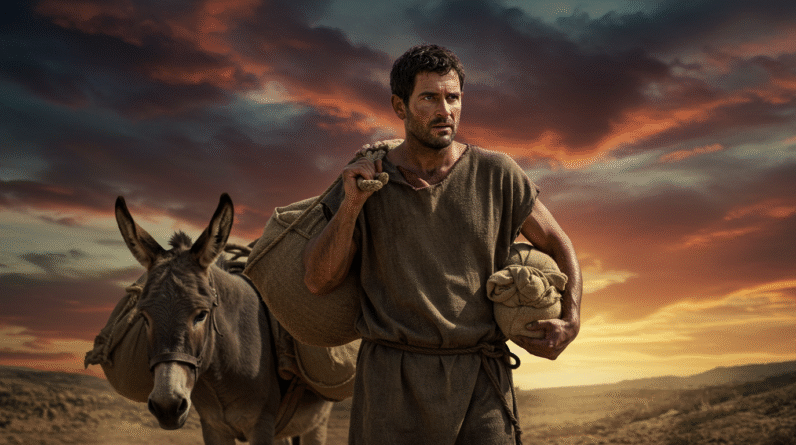Explore the courage and faith of Shiprah and Puah in Exodus, defying Pharaoh to save lives. Discover their inspiring legacy of bravery, integrity, and faith.

Introduction
In a world where bravery can sometimes seem scarce, the story of Shiprah and Puah stands out as a beacon of courage and faith. These remarkable women are not merely historical figures; they are embodiments of moral strength and resilience amidst tyranny. Shiprah and Puah, Hebrew midwives in ancient Egypt, defied the most powerful man of their time, Pharaoh, by protecting innocent lives when it seemed there might be no hope. Their legacy, as chronicled in the book of Exodus, invites us to reflect on personal acts of courage that shape the future (Exodus 1:15-21).
Their Story in the Bible
As the story unfolds in Exodus, Shiprah and Puah are introduced against the backdrop of a burgeoning crisis for the Israelites in Egypt. The Hebrew population was expanding rapidly, causing alarm for Pharaoh, who feared their growing strength could lead to rebellion. His response was merciless: he commanded the Hebrew midwives to kill all newborn Hebrew boys at birth, a decree that seemed impossible to defy (Exodus 1:15-16).
However, Shiprah and Puah, guided by their reverence for God, embraced a bold course of action. They chose to let the boys live, directly disobeying the king’s orders. When questioned by Pharaoh, they bravely and cleverly defended their actions, explaining that Hebrew women gave birth before the midwives could arrive (Exodus 1:17-19). This daring move not only saved countless lives but also testified to their deep faith. Their actions impressed Pharaoh enough that he allowed them to continue their work. Because of their reverence for God and their courageous hearts, God blessed Shiprah and Puah, ensuring their legacy and ensuring that they played a crucial role in the eventual liberation of the Israelites (Exodus 1:20-21).
Lessons from Their Life
Shiprah and Puah’s story offers poignant insights into the nature of true courage and faith. Here are a few lessons we can glean from their lives:
- Courage Against Oppression: The decisions that Shiprah and Puah made demonstrate how individual acts of bravery can counteract systemic injustice. They remind us that the power to change oppressive systems often begins with one courageous gesture. In today’s world, it’s easy to be overwhelmed by policies and actions that seem beyond our control, but as Shiprah and Puah showed, even small acts of defiance can be significant.
- Faith Over Fear: Their story is a testament to the strength that comes from fearing God more than men. As they prioritized their spiritual convictions over earthly threats, Shiprah and Puah illustrate the profound peace accompanying a faith-driven life. They invite us to evaluate our priorities and challenge us to anchor our actions in faith rather than fear.
- The Impact of Integrity: Shiprah and Puah didn’t compromise their integrity, even when faced with the possibility of severe repercussions from Pharaoh. Their unwavering commitment to their beliefs is inspiring and serves as a reminder of the lasting impact integrity can have—not only on our lives but the lives of others.
Connection to Today’s World
In the modern world, stories like that of Shiprah and Puah inspire us to confront the issues of today with the same fortitude and integrity they exhibited. Although circumstances have changed, our societies still face challenges requiring courageous individuals to stand for truth and justice.
Consider situations of social injustice or environmental degradation: the courage to confront these issues often starts with individuals who are willing to take a stand, much like Shiprah and Puah. Their story is a call for each of us to examine our own lives, ask where injustices lie, and determine how we might leverage our actions for the greater good. In families, communities, or workplaces, these lessons in faith and boldness can guide us as we navigate difficult conversations or make challenging decisions.
Key Bible Verse
“But the midwives feared God and did not do as the king of Egypt commanded them, but let the boys live.” (Exodus 1:17)
This verse encapsulates the essence of Shiprah and Puah’s courage and faith. It highlights their reverence for God as the guiding force behind their life-saving decisions. This allegiance to divine rather than human authority underscores the remarkable strength that faith can inspire, prompting us to reflect on whom and what we ultimately serve.
Thought-Provoking Question
When faced with a moral dilemma, do you find the courage to act following your beliefs, even when it means challenging authoritative figures or societal norms?
Historical/Cultural Context
Shiprah and Puah lived in a world vastly different from our own—a time when the Egyptian empire was a dominant force in the ancient Near East. As Egyptians sought to control the Hebrew population through oppression and fear, the midwives’ defiance was an unprecedented stand against an absolute monarch. Understanding the historical context of their story enhances our appreciation for the risks they undertook, revealing their actions to be not merely brave but exceptionally radical for their time.
Comparison with Other Characters
A similar story of bravery is told through the narrative of Esther, another remarkable woman who stood up to a king’s decree. Both Shiprah, Puah, and Esther exercised their courage in the face of life-threatening challenges. However, unlike Esther, who used her influence within the royal court to effect change (Esther 4:13-16), Shiprah and Puah acted from a place of lowly status, outside the realms of power, showcasing that courage doesn’t require a lofty position to make an impact.
Prayer
Dear God, grant us the courage of Shiprah and Puah—a courage that holds fast to faith and stands strong in truth. Help us to act boldly against injustice and follow Your will above all else. As we face our trials and decisions, may their story encourage us to prioritize integrity and faith. Amen.







